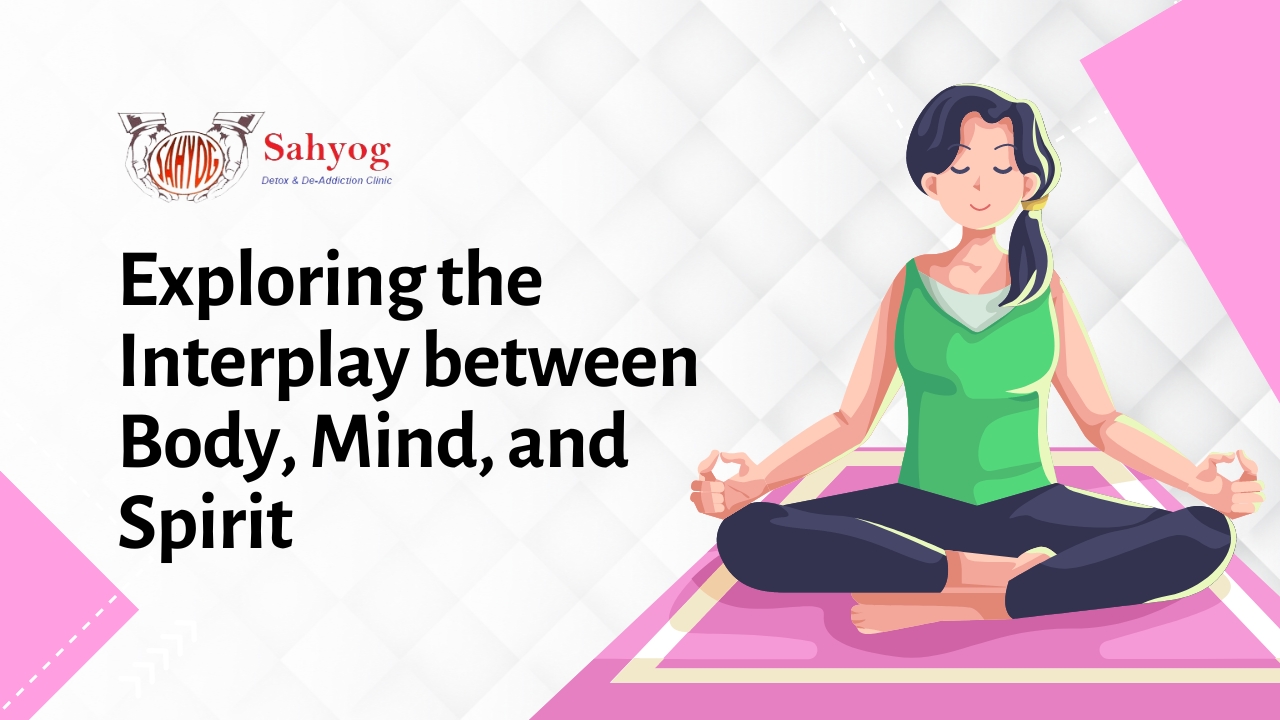Body image positivity is a strong movement that challenges social standards and promotes self-love and acceptance. Body image positivity provides optimism and empowerment in a society where unattainable beauty standards and media influence may hurt self-esteem. This article examines body image positivity’s effects on mental health, the media’s role in molding body image, ways to cultivate it, and the advantages of adopting it.
Society’s emphasis on physical attractiveness can impair mental health and self-esteem. Depression, anxiety, and eating disorders are linked to poor body image. Many people feel inadequate and have a skewed body image, trying to achieve impossible beauty standards. This loop promotes unrealistic aspirations and harms well-being. Body positivity is a strong alternative. It encourages people to appreciate their bodies and accept themselves. It promotes a good body image by shifting attention from looks to inner traits and accomplishments.
Media shapes beauty standards and body image. Mainstream media promotes unrealistic beauty standards and a limited body type variety. Images from ads and social media might make people feel insecure. Media literacy and critical thinking may help people reject these ideas and seek a more inclusive beauty.
Body image optimism requires self-care, self-compassion, and positive influences. Instead of comparing oneself to others, it involves concentrating on qualities and successes. Supportive environments and variety may help people accept and appreciate various body forms.
Body positivity has many benefits. It improves mental health, self-esteem, and life quality. Acceptance and love of the body boost confidence and empowerment. They can better handle social pressures and promote a more welcoming environment.
In conclusion, body image positivity may challenge detrimental social standards, encourage self-love, and build a positive body image. Understanding how body image affects mental health, acknowledging the influence of media in molding ideals, and actively promoting body positivity may lead to meaningful personal growth and a more inclusive society. In the following parts, we will discuss these topics and give tips for adopting body image positively.
The Impact of Body Image on Mental Well-being
Mental health is affected by body image. Body image affects self-esteem, self-worth, and mental health. Today, negative body image is disturbingly common, causing many psychological disorders.
Self-esteem and inadequacy are connected to negative body image. When people internalize beauty standards and compare themselves negatively, they typically have a skewed body image. They may overemphasize perceived imperfections, leading to self-criticism and discontent. Negative self-perception can damage relationships, social interactions, and happiness.
Eating disorders are a serious consequence of bad body image. A restrictive diet, excessive exercise, and improper weight control might result from pursuing an unrealistic physique. Anorexia, bulimia, and binge-eating disorders can result from trying to achieve aesthetic standards. These illnesses cause sadness, anxiety, and obsessive-compulsive behaviors as well as physical health issues.
Negative body image can perpetuate body dissatisfaction. Emotional eating, self-isolation, and social avoidance may result from a cycle of negative self-talk and comparison. These activities can worsen body image and mental health.
Negative body image affects all genders, ages, and backgrounds. Body dissatisfaction and mental health issues affect men and women. Children and teenagers are more susceptible to unfavorable self-perceptions from body image pressures. Thus, body image positive and mental health should be promoted holistically and inclusively.
Promoting body image positively is crucial for mental health. Challenge beauty stereotypes, embrace variety, and promote self-acceptance and self-love. By focusing on internal traits, achievements, and health, people can improve their body image and mental health.
Understanding Body Image Positivity
Body positivity promotes self-acceptance, self-love, and body diversity. It promotes self-acceptance and rejects society’s beauty standards. Body image positivity emphasizes inner traits, total health, and personal strengths.
Body image positivity promotes self-love. Principles include:
- Body image positivity promotes accepting one’s body regardless of form, size, or perceived flaws. It promotes self-compassion and self-forgiveness.
- Body image positivity promotes self-love and body respect. This means appreciating the body’s talents and prioritizing health over looks.
- Body image positivity advocates the belief that there is no “ideal” body type. It promotes diversity and diversity above restrictive beauty standards. It values and respects all body types.
- Body image positive recognizes that weight and size do not define health. It encourages “health at every size,” arguing that people may prioritize their health and adopt healthy habits regardless of their size.
- Body image positively emphasizes that people have the freedom to choose how they dress, and style. It promotes body autonomy and opposes aesthetic standards.
These concepts can help people promote body image positivity in themselves and their communities. Body image positivity is about having a healthy and compassionate viewpoint that allows for self-acceptance and personal progress, not dismissing or rejecting body issues.
Body image positive does not negate health. Instead of obsessing about body size, it promotes physical, mental, and emotional well-being. Self-care includes eating healthily, exercising, and prioritizing mental and emotional health.
The Role of Media in Shaping Body Image
Television, publications, ads, and social media shape beauty ideals and body image. Media portrayals of unrealistic and restricted beauty standards affect how people view their bodies, frequently leading to negative body image and psychological issues.
Unrealistic beauty standards are a major media effect on body image. Advertisements often show unrealistically beautiful visuals. These photographs show beautiful, airbrushed bodies, which can make people feel insecure and inferior.
Magazines and fashion media promote the perception that only certain body types are attractive. Lack of representation can contribute to poor body image and self-doubt. Social media also affects body image. Social media may skew reality by showing people’s “perfect” bodies and lives. As people compare their lives and bodies to social media photographs, they may feel inadequate.
Social media body-shaming and fat-shaming can hurt self-esteem and body image. Negative remarks, criticism, and unrealistic physical expectations can foster body dissatisfaction and unhealthy beauty standards.
Media literacy and critical thinking help offset media’s harmful impact on body image. These abilities help people detect the false character of many media depictions of beauty. Media literacy entails questioning and interpreting media messages, assessing their objectives, and understanding how images and body standards are manipulated.
Positive and inclusive media is also important. This includes fostering bodily diversity, and media diversity, and combating damaging stereotypes and beauty conventions. Supporting media outlets and content producers who promote body positivity and inclusion may help balance and empower media.
In conclusion, media portrayals of unrealistic beauty ideals and restrictive beauty standards shape body image. Media literacy, critical thinking, and discernment need to understand how media affects body image. Individuals may promote healthy body image by questioning artificial beauty standards and fostering media variety. We will discuss body positivity and its advantages in the following parts, providing skills to navigate the media and develop a positive body image.
Building Body Image Positivity
Self-acceptance, self-love, and a healthy body image are key to body image positive. These methods help improve body image and self-esteem. Key ways to improve body image:
Self-care and self-compassion:
Take care of yourself. This may involve enjoying regular exercise, prioritizing relaxation, practicing mindfulness or meditation, and surrounding oneself with good influences. Kindly reframe negative self-talk into positive affirmations.
Question negative thoughts and ideas:
Be aware of negative body thoughts and beliefs and intentionally question and reframe them. Focus on your accomplishments and non-physical attributes. Remind yourself that beauty comes in many shapes, sizes, and forms and that society does not determine your worth.
Positive influences:
Surround yourself with people who advocate body positivity and self-acceptance. Find online or offline networks that promote body positivity and diversity. Discuss inclusive beauty values.
Practice gratitude:
Instead of focusing on imperfections, enjoy your body. Appreciate your body’s ability to move, feel pleasure, and enjoy activities. Appreciate your body’s power and originality.
Limit exposure to negative triggers:
Limit media and social media intake that promotes negative body image and comparison. Unfollow or mute bad accounts or material. Instead, fill your stream with diverse, body-positive material.
Recognize and appreciate body diversity:
Challenge beauty conventions. Accepting varied forms, sizes, and talents challenges beauty conventions. Surround oneself with inclusive beauty images.
Engage in activities that boost self-confidence:
Participate in activities that build self-confidence and body awareness. Try new hobbies, exercise, or express yourself creatively. Honor your individuality.
Seek professional support if needed:
If poor body image causes disordered eating or other psychological issues, seek professional help. Therapists, counselors, and eating disorder experts can help with these issues and promote body image positive.
Body image positivity takes time and self-compassion. Remember that day when you struggle are natural, but by persistently adopting these tactics and getting assistance when required, you may eventually create a better and more positive connection with your body.
Fostering Body Positivity in Society
Body positivity is a collaborative endeavor to create a more welcoming society. We can fight detrimental beauty ideals, and prejudice, and establish a body-positive community by promoting body positivity. How to promote body positivity:
- Discuss body image concerns, media’s influence on body ideals, and body positivity. Workshops, seminars, and community gatherings on these themes can help people learn and discuss.
- Diversify media, advertising, and other channels. Promote diverse body forms, sizes, ages, abilities, and ethnicities in media and advertising. Support body-positive content producers and influencers.
- Speak up against body-shaming, fat-shaming, and appearance-based prejudice. Encourage kindness and respect for all bodies. Promote body-positive language and actions.
- Get active in campaigns and organizations. Donate or volunteer for body image, eating disorders, and mental health organizations. Celebrate diversity and self-love at body-positive events.
- Promote body positivity in children and adolescents by teaching them about varied body shapes and self-worth. Encourage frank discussions on body image and self-esteem and give body-positive role models.
- Promote physical, mental, and emotional self-care. Encourage people to nurture their bodies with good food, exercise regularly, and practice self-compassion and self-acceptance.
- Use body-affirming language and behaviors. Avoid body-shaming and confront others who do. Promote inclusiveness and acceptance in your personal and professional life.
- Help body-discriminated people achieve body positivity. Listen, elevate underrepresented perspectives, and challenge social conventions and biases to be an ally. Promote inclusion and body diversity in education, healthcare, and employment.
We can empower all body shapes by promoting body positivity in society. Embracing bodily variety, challenging negative beauty stereotypes, and fostering self-acceptance may enhance mental health, stigma, and happiness and fulfillment for everyone.
The Benefits of Embracing Body Image Positivity
Body image positively improves mental health, self-esteem, and life quality. Benefits of self-acceptance and self-love above exterior looks include:
- Body image positively improves mental well-being. Accepting and respecting their body reduces tension, worry, and sadness. They can improve their relationship with themselves, boosting self-confidence, self-worth, and life pleasure.
- Body image positively boosts self-esteem and self-perception. Self-esteem may be boosted through recognizing and praising unique talents and strengths. Beyond physical beauty, self-esteem improves relationships, careers, and personal accomplishments.
- Body image positivity promotes self-acceptance and self-compassion. Acceptance fosters self-compassion and forgiveness. Self-care and prioritizing well-being help people treat their bodies with love.
- Body image positivity frees people from media- and society-imposed beauty standards. Recognizing that beauty is different frees people from restrictive ideas. Liberation enhances honesty and self-expression.
- Body image positivity promotes holistic health above attractiveness. Focusing on total well-being encourages healthy habits including frequent exercise, balanced eating, and self-care. They value health and energy above adhering to appearance norms.
- Body image positively improves relationships and social ties. Positive body image boosts confidence, assertiveness, and the capacity to build genuine connections. It promotes acceptance in diverse and body-positive groups.
- Body image positively improves life generally. Body dissatisfaction is lifted, freeing people to enjoy life. They may follow their passions, develop and achieve objectives, and find true pleasure.
Body image positivity may alter mental and emotional well-being, leading to a more fulfilled and powerful existence. It improves relationships, communities, and society.
Conclusion
Body image positivity combats society’s artificial beauty standards and body dissatisfaction. Self-acceptance, self-love, and body variety replace outward appearance. This article has examined the effects of body image on mental health, the necessity of understanding body image positivity, the role of media in creating body image, tactics for establishing body image positivity, and the relevance of promoting body positivity in society.
Self-care, confronting negative beliefs, surrounding oneself with good influences, and supporting variety can improve body image. Body image positivity benefits individuals and society as a whole. Body positivity Positivity improves mental health, self-esteem, body acceptance, freedom from comparison, physical health, relationships, and quality of life. It frees people from beauty expectations and fosters honesty, self-compassion, and self-expression.
Body positivity also promotes a more welcoming culture. Challenge toxic beauty stereotypes, promote diversity, and support body-positive initiatives to build a society where all bodies are accepted, respected, and cherished.
Building a body image positive takes time, self-compassion, and support. It entails unlearning negative attitudes, questioning society’s standards, and developing a positive outlook on life. Participating in this trip helps create a body-positive environment where people of all shapes, sizes, and identities may flourish.
Let us embrace body image positivity, celebrate diversity, and foster a culture of self-acceptance, self-love, and the intrinsic worth of every person, regardless of appearance. We can establish a body-positive culture where everyone may live genuinely, confidently, and joyously.
Frequently Asked Questions (FAQS):
-
Body image positivity?
Body image positivity is appreciating one’s body’s individuality and realizing that beauty comes in all forms. Self-acceptance, self-love, and body variety are key.
-
Does Body image positivity affects mental health?
Body positivity improves mental health. It reduces body dissatisfaction-related stress, anxiety, and depression. Positive body image boosts self-confidence and life pleasure.
-
Can a positive body image enhance my self-esteem?
Body image positively improves self-esteem. It promotes self-acceptance, self-compassion, and wellness. You may improve your body image by focusing on self-worth rather than attractiveness.
-
Media affects body image.
The Media’s artificial beauty standards and restrictive criteria of attractiveness affect body image. Photoshopped photos set unreachable standards, leading to comparison and inadequacy. Media bias reinforces poor body image.
-
How can we improve body image?
Self-care, self-compassion, confronting negative beliefs, surrounding oneself with good influences, accepting variety, doing self-confidence-boosting activities, and getting professional help are ways to improve body image.
-
Positive body image affects physical health?
Body image positivity improves physical wellness. Focusing on well-being rather than attractiveness encourages healthy habits like exercise, balanced eating, and self-care.
-
How can I encourage community body image positivity?
Raising awareness, promoting diversity and representation, challenging body-shaming and discrimination, supporting body-positive movements and organizations, encouraging self-care and self-compassion, and practicing inclusive language and behaviors can promote body image positivity in your community.
-
Is Body image positive for various body types?
Body image positivity is for everyone. It encourages self-love and body variety.
-
Can body positivity enhance relationships?
Body image positively improves relationships. Positive body image boosts confidence, assertiveness, and the capacity to make genuine connections.
-
How can I help a body-image sufferer?
Actively listen, encourage, empathize, avoid judgment and body-shaming, promote body positivity, and advocate professional care for someone with a bad body image. Show them you appreciate them beyond appearance.



